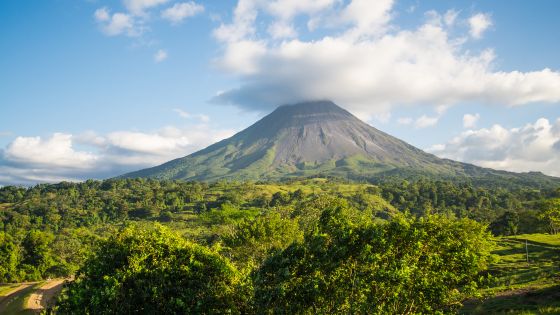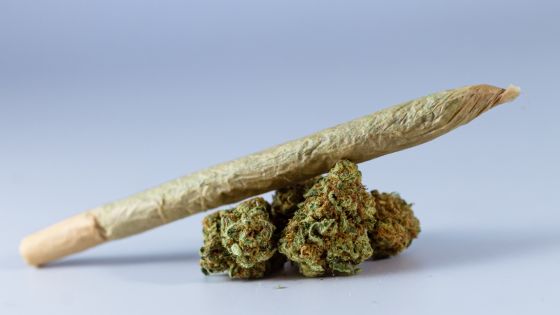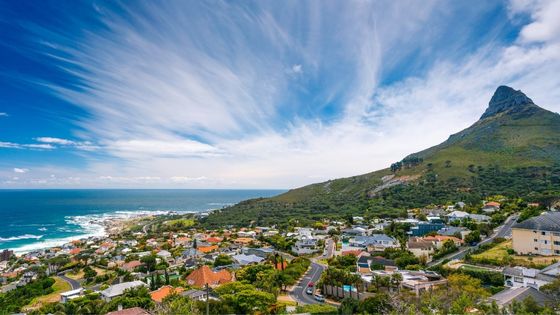Is the United States Safe for Black and Brown Travelers?
People keep asking me if America is safe to visit, and honestly? My answer is: it depends on who you are, what color you are, and where you’re going.
I’ve lived in the United States my entire life, and I currently reside in Murfreesboro, Tennessee, one of the most conservative counties in the country.
I’m also the only Black family in my neighborhood.
So when I tell you about safety in America, I’m not speaking from theory. I’m speaking from what I experience every single day.
If you’re a Black, Brown, or Muslim traveler, you need to approach visiting the U.S. with caution and awareness in 2026.
The political climate has shifted dramatically, and the current administration has implemented policies that specifically target immigrants and people of color.
The links in this post may be affiliate links. That means that if you click them and make a purchase, this site makes a commission. It will have no impact on the price you pay or the experience of your purchase.
Travel Safety Guide for Women
This guide breaks down the real safety concerns women face on the road and gives you clear, practical steps you can use on every trip. No scare tactics. Just the strategies that help me move through the world with confidence.
Price: $19.99
Get the Safety GuideWhat’s Actually Happening Right Now
The Trump administration has reinstated and expanded travel restrictions affecting 19 countries, mostly nations with Black and Brown populations.
These bans affect people traveling on any visa from 12 countries, including Afghanistan, Haiti, Somalia, Sudan, and Yemen.
The Transportation Security Administration now provides passenger lists to Immigration and Customs Enforcement (ICE), meaning your travel data is being actively monitored.
Hyper-militarized mass deportation operations are targeting Black and Brown communities in cities like Chicago, Memphis, and Portland.
I’ve watched ICE raids happen in Memphis.
I’ve seen families torn apart overnight. Just last week, ICE agents attacked a Somali man on his lunch break in Minnesota, even as customers shouted that he was a U.S. citizen, and he was detained before being released.
My Bottom Line
Should you still visit America? Yes, but only if you:
- Stick to diverse, major metropolitan areas (NYC, LA, Chicago, DC, Atlanta, Miami)
- Understand your rights at borders and with law enforcement
- Research your route carefully if traveling through rural areas
- Keep digital and physical copies of all travel documents
- Have your embassy contact information readily available
Who should think twice? If you’re traveling from countries on the ban list, if you’re visibly Muslim, if you have an accent, or if you’re planning to visit rural areas.
I’ve driven through small towns where Confederate flags hang proudly.
This isn’t the America of glossy travel brochures. It’s complicated, often unwelcoming, and increasingly hostile to people who are not white.
Let me walk you through what you need to know to stay safe.
Even if you are a visitor here on vacation, this climate of raids and deportations creates an atmosphere where anyone who is Brown or speaks with an accent may feel under suspicion.
With that being said, if you are white, you are probably safe traveling to the US, but if you are from any Black or brown country, I would think twice before traveling to the US.
Countries Warning Their Citizens About the U.S.
Here’s something that should embarrass every American: our closest allies are now warning their own citizens about traveling to the United States.
Let that sink in. Countries like Canada, Germany, and the UK, which have stood with us for decades, are telling their people to be cautious about coming here.
This isn’t normal.
As of December 2025, at least 15 countries have issued travel advisories about the United States:
European Countries:
- Germany
- United Kingdom
- Denmark
- Finland
- Ireland
- Netherlands
- Belgium
- France
- Portugal
Asia-Pacific:
- Australia
- New Zealand
- China
- Japan (following 2019 mass shootings, still in effect)
Americas:
- Canada
- Uruguay (2019, still in effect due to hate crimes and gun violence)
- Venezuela (2019, still in effect)
In March 2025, Germany, the UK, Denmark, and Finland all updated their travel advisories within days of each other after several European citizens were detained, deported, or turned away at U.S. borders despite having valid travel documents.
Germany’s Foreign Office specifically warned that travelers could be “arrested and detained” by immigration authorities, even when they’ve done nothing wrong.
The UK went even further, cautioning that “minor entry mistakes could lead to detention or deportation” and emphasizing how U.S. laws vary wildly from state to state, something that confuses even Americans, let alone foreign visitors.
What are they warning about?
Gun Violence: Australia, Canada, New Zealand, Uruguay, and Japan all specifically mention the risk of mass shootings and gun violence.
They’re telling their citizens to stay alert in crowded places like malls, concerts, schools, and public transit.
Countries are warning that even with valid visas or ESTA authorization, travelers can be denied entry without explanation.
Germany reported multiple citizens were arrested and detained simply while trying to enter the U.S. A French scientist was denied entry in March 2025 despite having proper documentation.
Canada’s advisory warns that failure to register properly with the U.S. government could result in “penalties, fines, and misdemeanor prosecution.”
New Zealand raised its alert to Level 2 after reports of its citizens, many of whom are Māori or Pacific Islanders, being detained or delayed over documentation discrepancies that white travelers never face.
Finland’s advisory specifically warns travelers that they must list their birth-assigned gender as either “male” or “female,” and that using different gender markers could result in denied entry.
What This Means for You as a Traveler
If you’re from one of these countries and still planning to visit, understand that your own government thinks there’s enough risk to issue a formal warning. That should tell you something.
Here’s what the advisories specifically recommend:
- Have all documentation perfectly organized and easily accessible
- Expect additional scrutiny at customs and immigration
- Be aware that valid visas don’t guarantee entry
- Stay alert in crowded public spaces due to gun violence risks
- Understand that U.S. immigration officers can deny entry without explanation
- Know that laws vary dramatically from state to state
- Contact your country’s embassy or consulate if detained
My Take on This
I’ve traveled to over 65 countries, and I’ve never seen anything like this. When your closest allies start warning their citizens about visiting you, that’s not just diplomatic posturing—that’s a genuine assessment that something has gone deeply wrong.
The Lincoln Project, a pro-democracy organization with nearly 3 million followers, put it bluntly: “Our allies are now warning their citizens that traveling to the U.S. means they risk being unlawfully arrested. This administration continues to embarrass us.”
They’re right. This is embarrassing. This is America telling the world we’re not safe, not welcoming, and not predictable anymore.

What Happens at U.S. Borders: Digital Surveillance, Phone Searches, and Your Rights
When you arrive at a U.S. airport, customs agents can and will search your phone without a warrant.
In fiscal year 2024, U.S. Customs and Border Protection searched 47,047 electronic devices out of 420 million travelers.
That’s less than 0.01%, but here’s what worries me: those numbers are skyrocketing.
In the second quarter of 2025 alone, CBP conducted 14,899 device searches, which is the highest on record and a 16.7% jump from the previous quarterly record.
Here’s what actually happens: CBP agents can scroll through your photos, read your text messages, check your WhatsApp chats, and review your social media posts all without your consent.
They conduct two types of searches:
- Basic searches: where they manually scroll through your device, and
- Advanced searches: where they download everything using external equipment and keep it for up to 15 years in something called the Automated Targeting System.
I’ll give you an example that still makes my blood boil: A 17-year-old Palestinian student named Ismail Ajjawi was detained for eight hours, searched his phone and laptop, then denied him entry not because of anything he posted, but because his friends had shared content critical of U.S. policies.
They literally screamed at this kid and sent him back to Lebanon over posts he didn’t even write.
That’s the reality. Your tweets, your Facebook posts, and even your friends’ political opinions can be used against you.
And it’s not just non-citizens at risk; even U.S. citizens traveling with foreign spouses have been detained while agents scrutinize their devices.
Here’s what you can do to protect yourself:
- Clean up your digital presence before traveling. Remove posts that could be misinterpreted.
- Use privacy settings on your social platforms but remember, nothing online is truly private.
- Travel with a clean device, or backup your personal data and carry a phone with minimal apps and accounts.
- Don’t assume your citizenship protects you if you’re traveling with a non-citizen spouse or friend CBP makes mistakes.
- Contact a lawyer immediately if you or someone you know is detained.
The U.S. government has made it clear: they’re watching us closely. And for travelers of color, immigrants, or anyone who doesn’t “fit the mold,” this kind of surveillance can feel incredibly invasive and targeted.
Knowing your rights matters more than ever when you’re flying within the U.S. or internationally.
If you’re a U.S. citizen flying domestically, TSA and ICE cannot search your phone or force you to unlock it without a warrant.
If you’re approached, you can calmly respond, “I don’t consent. Am I free to go?” On international flights, however, the rules shift.

Racism in America: Hate Crimes & Sundown Towns
Here’s what you need to understand about sundown towns: These aren’t just relics from history books.
Researchers at the University of Minnesota, University of Michigan, and Duke just compiled a comprehensive database in January 2025 tracking these places.
Over 1,800 communities across the United States once had laws or practices explicitly designed to keep Black people out after dark. Some posted signs.
Some used violence. Some just made it clear through hostile stares and threats.
The official signs may be gone, but the mentality? Still very much alive in many places.
I can drive 30 minutes outside of Murfreesboro and see Confederate flags hanging proudly.
That’s not history, that’s a message. And when you see those symbols in a small town, you understand exactly what they’re saying about who belongs and who doesn’t.
Just last week, a Black college student was found hanging from a tree.
Police called it suicide with “no sign of foul play,” but families and community leaders immediately demanded a deeper investigation.
We know how these things get dismissed. We know that “official” explanations don’t always match reality when Black bodies are involved.
If you’re planning to travel through rural America, especially the South and Midwes,t take these realities seriously:
- Research your route beforehand using tools like the Tougaloo College sundown town database
- Avoid stopping in small towns late at night if you can help it
- Trust your gut—if a place feels hostile, leave
- Keep your gas tank full so you’re not forced to stop in uncomfortable areas
- Travel during daylight hours whenever possible
I’m not trying to scare you away from traveling here.
But I refuse to paint a rosy picture that puts you in danger. America has extraordinary places to visit—vibrant cities, stunning national parks, rich cultural experiences.
But it also has places where people like us are not welcome, and pretending otherwise could cost you your safety.

If ICE Stops You: Your Rights and What to Do During Immigration Enforcement
ICE has arrested over 1,100 workers at workplaces since January 2025. In the first seven months of the second Trump administration, there have been at least 40 workplace raids.
The White House set a daily arrest quota of 3,000 people in May 2025 and only about 7% of those detained have violent crime convictions.
What happened in September 2025 should terrify anyone planning to work or travel in the U.S.: ICE conducted the largest single-site workplace raid in DHS history at a Hyundai battery plant construction site in Georgia.
They arrested 475 people, with 300 of them South Korean nationals, who lawyers say were lawfully authorized to work.
Even people with valid visas got swept up because agents claimed they violated visa terms.
If ICE approaches you, here’s what you need to know:
Your rights (even as a visitor):
- You have the right to remain silent and you don’t have to answer questions about where you were born or how you entered the country
- You can ask, “Am I free to go?” If they say yes, calmly walk away
- You have the right to speak to a lawyer before answering any questions
- You do NOT have to let them search your phone or bags without a warrant (though at borders, different rules apply)
What to actually do:
- Stay calm and keep your hands visible—sudden movements can escalate things
- Say clearly: “I want to remain silent and speak with a lawyer”
- Do not run, even if you’re scared—Mubashir’s case shows they’ll chase you down
- Never hand over fake documents or lie—silence is always better
- Keep copies of your passport, visa, and travel documents in your bag and digitally backed up
- If detained, immediately call the ACLU at 1-800-775-ACLU or your country’s embassy
If you’re visiting the U.S. and you’re Black, Brown, Muslim, or have an accent, understand that these raids are happening everywhere, in restaurants, car washes, construction sites, nail salons, and Home Depot parking lots.
ICE agents show up in unmarked vans.
They don’t always identify themselves. And they’re arresting first and checking citizenship status later.
Timeline of Trump-Era Policies and Actions (2017–2025)
| Year | Key Policy / Action | What It Meant for Travel & Safety |
|---|---|---|
| 2017 | Muslim Ban issued — restricting travel from several Muslim-majority countries. | Created fear among Muslim travelers; seen as precedent for stricter vetting and exclusion. |
| 2018 | Family Separation Policy at the southern U.S. border. | Heightened concern among immigrant and Latino communities; signals harsh immigration enforcement. |
| 2019 | Increased ICE raids in workplaces and neighborhoods; rollback of diversity and inclusion initiatives begins. | Raised anxiety in immigrant communities; people of color felt under heavier scrutiny. |
| 2020 | More anti-immigration rhetoric; enforcement around protests; increased visibility of law enforcement. | Made cities less welcoming for some; fear among foreign nationals and minorities about arbitrary police contact. |
| 2024 | Policy shifts begin in lead-up to election (drafts and promises around enhanced vetting, stricter immigration entrance rules). | Travelers and visa holders face increased uncertainty; announcements affect perceptions of safety before even arriving. |
| January 2025 | Executive Order 14159, “Protecting The American People Against Invasion,” signed on Jan 20. The White House+1 | Expanded expedited removals; sanctuary jurisdictions threatened; harsher enforcement for “inadmissible” immigrants. |
| January 2025 | Executive Order 14160, “Protecting the Meaning and Value of American Citizenship,” signed Jan 20. Wikipedia | Attempted ending of birthright citizenship for children born to undocumented or temporary-status parents; legal challenges followed. |
| June 2025 | Proclamation 10949: “Restricting the Entry of Foreign Nationals to Protect the United States from Foreign Terrorists and Other National Security and Public Safety Threats” signed on June 4. The White House+1 | Full bans on immigrant and non-immigrant visas from certain countries; partial bans on others. A new “travel ban” affecting many countries. This had immediate implications for foreign travelers. |
| 2025 (ongoing) | Renewed enforcement actions by ICE, raids in workplaces, and changes in sensitive-area protections (schools, churches). The Guardian+2American Immigration Council+2 | Increased fear among immigrant and minority communities about being arrested or questioned. Travelers may be unsure if “safe zones” like hospitals or schools still offer protection. |

FAQ- Is America Safe for Travel Right Now
Yes in major diverse cities, but rural areas can be less welcoming due to racial profiling and visible symbols of racism.
Yes. Countries including Canada and New Zealand caution visitors about racial discrimination and gun violence.
Mass shootings and gun-related violence are more common in the U.S. than in many other countries. Travelers should remain alert in crowded public spaces.
Airport profiling and harassment can happen, especially for those wearing visible religious clothing. Large cities with more diversity are generally safer.
New York City, Washington DC, Atlanta, Chicago, Los Angeles, Miami, and Houston are among the most welcoming.
It really depends!. Millions of people travel safely every year. But if you’re a traveler of color, it’s important to plan ahead, research safe areas, and understand your rights
Tips for Travelers of Color Visiting the U.S.
- Know Your Rights at the Border – Border patrol agents have a lot of power, but they can’t detain you without cause. If you have a valid visa or passport, stand your ground if you feel you’re being unfairly questioned.
- Avoid High-Risk Areas – Not every part of the U.S. welcomes foreigners. States with strict immigration policies—like Texas, Florida, and Arizona—might not be the best places to visit if you’re worried about racial profiling.
- Be Cautious with Law Enforcement – If the police stop you, stay calm and know that you have the right to remain silent. If possible, keep a translation app on your phone if English isn’t your first language.
- Use Ride-Sharing Instead of Driving – This might sound small, but using Uber or Lyft can help avoid unnecessary encounters with law enforcement, especially if you’re unfamiliar with U.S. traffic laws.
- Stick to Tourist-Friendly Cities – Major cities like New York, Los Angeles, and Chicago are more used to international visitors and are more diverse and welcoming.
- Lean on Your Embassy – If you’re in a difficult situation, don’t hesitate to contact your country’s embassy in the U.S. They can provide legal assistance and help if you feel unfairly detained.
My Final Thoughts: Is America Worth Visiting in 2026?
I never imagined I’d write an article warning people about visiting my own country.
Growing up, America represented freedom and opportunity.
The Trump administration has disproportionately targeted Black immigrants, who represent only 5% of the undocumented population but make up 20% of those facing deportation.
Policy memos prioritize admitting refugees who can “easily assimilate,” with white Afrikaners from South Africa as the target demographic.
This isn’t subtle. It’s explicit racial targeting.
I’ve traveled to over 65 countries, and I’ve never felt as unsafe anywhere as I sometimes do in certain parts of my own nation. The weight of being constantly watched, constantly judged, constantly having to prove I belong—it’s exhausting.
But here’s what I want you to understand: America isn’t monolithic.
In New York, I blend into a sea of cultures. In Atlanta, I’m surrounded by Black excellence. In Chicago, immigrant communities thrive despite harassment.
These cities hold space for Black and Brown people.
If you decide to come:
- Research, Research, Research. Know which neighborhoods welcome you and which don’t.
- Stay connected. Keep your embassy on speed dial. Join local community groups.
- Trust your instincts. If a place feels wrong, leave. Your safety matters more than any itinerary.
- Document everything. Keep digital copies of all documents. Record interactions if you feel threatened.
- Travel in groups when possible. There’s safety in numbers, especially in unfamiliar areas.
America is struggling with its identity right now, caught between its diverse reality and the Trump administration’s political movement trying to turn back time.
Whatever you decide, travel safely. Stay aware.
Related Travel Safety Reads from Passports and Grub:
- Is It Safe to Fly? – A real look at safety concerns for air travelers.
- Is Mexico Safe? – A deep look into the realities of crime and tourism in Mexico.
- Is Cancun Safe for Travelers – A look into if Cancun is safe for American travelers.
- Is It Safe to Fly with Edibles– Practical advice for navigating flying with edibles.
Before you book your flight, grab my Comprehensive Travel Safety Guide. It’s packed with practical tips on everything from navigating airports to staying safe on road trips and handling emergencies.
I created it with travelers of color in mind, but the strategies apply to anyone visiting the U.S. or traveling abroad.
Travel Safety Guide for Women
This guide breaks down the real safety concerns women face on the road and gives you clear, practical steps you can use on every trip. No scare tactics. Just the strategies that help me move through the world with confidence.
Price: $19.99
Get the Safety GuideARE YOU ALSO ON PINTEREST?
Why not save this post to your Pinterest board for later? I am also on Pinterest so feel free to follow Passports and Grub boards and get the latest PIN directly








But between the mass shootings, political tension, and rising hate crimes, it’s been hard to feel confident about visiting, even as someone who used to travel there regularly.
I appreciate how you didn’t just go into fear-mongering mode, but instead laid out the facts and encouraged readers to be informed and cautious without totally canceling their plans. Travel, like anything else, comes with risks, and understanding where and when to go—and how to stay aware—is key.
The part that hit me hardest was your note about being a Black traveler in America. That added layer of concern isn’t something all travel guides talk about, but it’s real, and it matters.
I also liked your tips about checking local advisories, avoiding certain areas, and just using basic street smarts—solid advice no matter where you’re traveling.